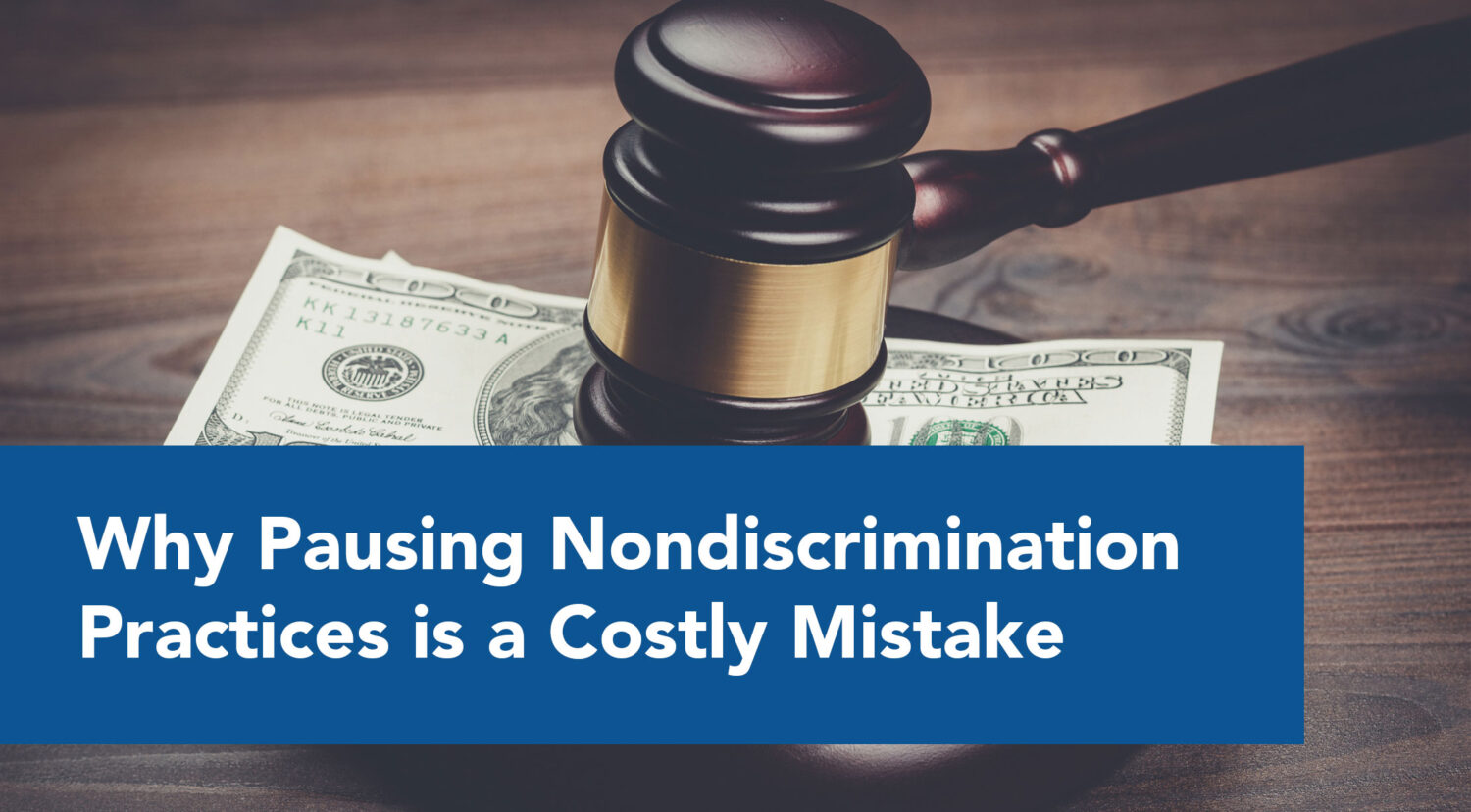The OFCCP in general has focused on what it calls “systemic discrimination”, in selection and hiring and particularly paid attention in 2013 to non-traditional victims. Goodwill settled for $130,970 in back wages and made 18 job offers to qualified men to settle allegations of systemic discrimination against men and in favor of female applicants for certain entry level positions. Similarly, the OFCCP alleged that ResCare, engaged in systemic discrimination by rejecting 77 male applicants for in-home care positions. In OFCCP v. VF Jeanswear, however, an Administrative Law Judge (ALJ) dismissed allegations that VF Jeanswear’s hiring practices had a disparate impact against “non-Asians”, who were “neither a race nor an ethnic group”. This case can serve as a signal to the OFCCP that aggregating certain groups for the purpose of disparate impact analyses is not an acceptable practice.
The OFCCP also remains concerned about the usual victims of systemic discrimination in selection and hiring. OFCCP v. Baltimore Electric and Gas Co., alleged systemic hiring discrimination to the detriment of African American applicants rejected for positions within three utility trainee job categories between 2007 and 2008. BGE apparently relied heavily upon employee referrals, which is a commonly used recruiting practice in labor-intensive – industries. Although BGE claimed to have already implemented many improvements to its hiring process prior to the start of its 2009 audit, it still paid $350,000 to 58 African American applicants as part of a settlement. In this vein, the OFCCP may have sent an even stronger message in its case against Bank of America in which BOA allegedly engaged in widespread hiring bias by improperly denying teller positions to many African Americans. This case is noteworthy because it took approximately 20 years and over $2,000,000 to settle, aside from litigation and consulting costs, etc. Hiring and selection procedures can also include pre-employment testing. If the tests appear to adversely impact a disproportionate number of minorities, then once again the OFCCP will have something to say about it, as MC Dean found out when it had to pay $875 million in back wages and interest to African American, Asian and Hispanic applicants for apprentice and electrician positions.
In July 2013 the OFCCP clearly signaled that it will monitor a contractor’s compliance with settlement terms in OFCCP v Tufts Associated Health Plans. As part of a 2009 settlement, Tufts agreed to hire minority applicants as customer service representatives. In 2010, an employee hired under those settlement terms complained that he was later terminated, in retaliation and due to his membership in the settlement class. The follow-up settlement included payment of $372,739 to 12 Asian, Hispanic and African American workers. Contractors who settle cases with the OFCCP therefore need to monitor their own compliance going forward or they can end up responding to subsequent complaints. Seriously!
Systemic pay discrimination or discrepancies will also land federal contractors on the OFCCP radar, as shown in OFCCP v. Meditronic, the first systemic compensation case filed under Directive 2013-03. Contractors will want to make sure that their compensation practices are compliant with the new directive and do not favor or disfavor any particular gender, racial or ethnic groups, or disabled individuals or veterans. Note: pay determination must be job related and accommodate business necessity. The onus is on the federal contractor to prove job-relatedness and business necessity. In other words, the contractor in effect is “guilty until proven innocent”.
Of course we must mention the new regulations regarding Section 503 of the Rehabilitation Act and VEVRAA. The biggest concerns to many contractors seemed to be a) the requirement to invite Individuals with Disabilities to self-identify, and b) hiring benchmarks for veterans, characterized by the OFCCP as “aspirational” rather than mandatory goals. Despite a letter issued by counsel for the EEOC asserting that this requirement did not violate the Americans with Disabilities Act, contractors are worried that they will be vulnerable to ADA claims by disgruntled applicants or employees. Contractors are also concerned that even “aspirational” goals can in effect become quotas, which run counter to the very purpose of Affirmative Action, ensuring hiring without regard to race, gender, national original, religion, creed, color, disability, or veteran status. At issue was also the way in which the OFCCP engaged in its final rulemaking, which was the subject of testimony before the House Subcommittee on Workforce Protections, strengthening a perception that the OFCCP has become increasingly autocratic, possibly signaling tough times ahead for the federal contracting community.
In light of these developments, contractors should consider the following steps:
- Ensuring that all its selection and hiring practices, including pre-employment tests do not adversely impact any particular gender or racial or ethnic group, even groups that may not be considered traditional victims of discrimination.
- Become familiar with the new directive regarding compensation, and implement compliant policies and procedures.
- Regularly review, monitor compliance with and update hiring, promotion compensation, and anti-discrimination policies and procedures.
- Train management regarding Affirmative Action and all related policies and procedures.
- Engage competent counsel and/or subject matter experts to help ensure compliance
One thing recent developments make clear: being proactive about compliance is better for business!
Keep a lookout for our upcoming posts, where we will talk about the OFCCP’s agenda for 2014 and its stated goal of applying Title VII principles to its scrutiny of compensation practices. We will also explore the OFCCP’s more recent Regional Director appointments to see what indication they might provide of the OFCCP’s direction for the coming year.





